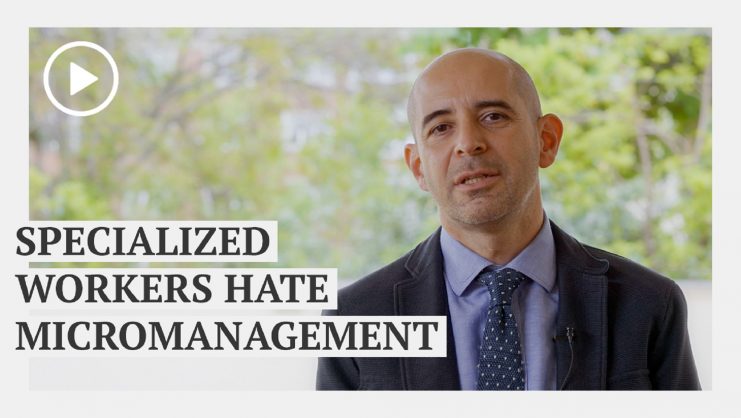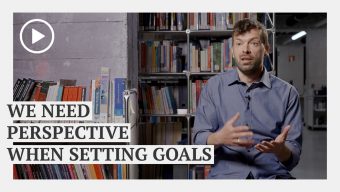“Can I get some sugar-coated feedback, please? With a dollop of white lie on top, so that I feel better?” Typically, that’s not the request but it’s often what’s served.
People who have greater self-awareness are more successful in nearly every aspect of their lives. However, such awareness is not something that comes naturally to us – in fact we tend to have a rather distorted view of our own capabilities.
Self-awareness takes work and it also requires feedback, which is information about how you are doing. Feedback is critical to high performance. Positive feedback is data on what you should continue and negative, or constructive, feedback directs you to areas that could be done differently. Yet, we don’t seem to get enough of it. Why is that?
When demand outstrips supply.
In economics, deficits can be helpful in certain circumstances. In the long term, however, a deficit is detrimental to growth and stability. The same applies to careers. Just as a budget deficit is often associated with weaker currency, a feedback deficit can reduce a worker’s skills development and lead to weakening of “career currency.”
A lack of self-awareness, or “blind spots,” gets in the way of our ability to improve. We don’t see the need, or we underestimate it, and the result is a failure to understand the development we need.
Consciously, of course, we know that feedback is good for us and we understand its necessity. In fact, our research reveals that 93% of respondents believed that feedback was “very important” or “extremely important” in today’s complex environment. Yet, in the same survey, one-third of leaders confessed that they never give feedback to their subordinates. This deficit of feedback is confirmed to be even more prevalent for women. This implies that workers who are lucky enough to have a boss that does provide feedback (let alone the fair, focused, and credible variety) have the opportunity to grow and move along their career track at a faster rate than those who do not receive feedback. A systematic lack of feedback is bad for individuals, organizations, and eventually societies as a whole.
Solving for the deficit.
In economic terms, the two ways of reducing a deficit are either to increase revenue or to decrease spending. The options are to generate more value and reduce waste or use what you have more efficiently. Following that same logic, in order to have more feedback, it is necessary to increase its availability, quality, and utilization.
1. Increase availability
- Up the frequency. Most employees report that they don’t get enough feedback. This isn’t surprising. One option is to ask those who already do give you feedback to do so more often. For example, have a monthly 1-1 meeting with your boss? Ask if they can be fortnightly. Have an annual review? Schedule a midyear check-in. Simply tweaking the frequency of your already established feedback routines can help reduce the deficit.
- Say thank you. The most common mistake in receiving feedback is getting defensive. “But I thought… what I meant… you got it wrong…” This is an understandable reaction to feedback, especially when it is not what you were expecting or hoped to hear. But it is also an unhelpful reaction, for everyone involved. Someone who has made a choice to share useful information with you should not feel guilty about their honesty. Constructive feedback (and that’s the type we typically get defensive about) is critical for success: it indicates where you have the opportunity to be more effective in your work. Instead, respond with a “thank you, I appreciate your candor” and chances are… they will help you again. By signaling your openness to feedback, you invite others to share it more freely.
2. Increase quality
- Ask the right question. Perhaps the most powerful way to increase your access to growth-supporting feedback is to ask for it. Yet this is not always easy. You muster the courage to ask, only to be fobbed off with generalities. The reason for this is often because “Can you give me some feedback?” is not an effective question. Instead, try forgoing the word “feedback” entirely and instead ask “What is one thing that I could do differently next time?” or “Which alternative would be better for my development?”
- Diversify your sources. Getting varied input will help you understand what areas most need your attention. Furthermore, diversifying your sources has the added benefit of highlighting potential bias and outliers in the feedback. Your manager or coach are good, obvious sources of feedback but they are not the only ones. You can also ask your peers, both inside and out of the organization. This may feel challenging because you are showing vulnerability, but your peers have a distinct point of view of you as an individual professional and also the job position. Likewise, you can ask your direct reports, if you have them. If you want to increase candor, have your feedback sources complete a confidential “360” survey.
3. Increase utilization.
- Integrate into day-to-day. It’s difficult to do your daily job and work on self-improvement at the same time, but it is possible. For example, when you receive feedback that your “elbows are too sharp” (i.e., problems with peer relationships), pay deliberate attention to the projects that your teammates are working on and focus on being forthcoming with information and assistance. In this way, you contribute to the team results while improving your reputation. Practicing the new behavior repeatedly will help develop habits over time.
- Be accountable. Not only is it essential for reaching your goals, but following through on the feedback you have received will signal your professionalism and respect for those who have taken the time to support you. It helps to tell people about your plans and end goals (there’s nothing like telling others to increase your sense of accountability) and to ask for feedback on your progress. This will allow you to course correct if things aren’t going as they should. Finally, determine in advance how you will reward yourself if you progress as planned. Reaching that goal or milestone deserves to be celebrated and this will, in turn, provide motivation to keep going.
The Opportunity
“Can I get some honest feedback, please? With a dollop of solid advice on top, so that I perform and grow?” This is a useful frame of mind for a working relationship with feedback. It’s an important career leverage point, particularly for those with the potential to grow and to lead.
© IE Insights.






